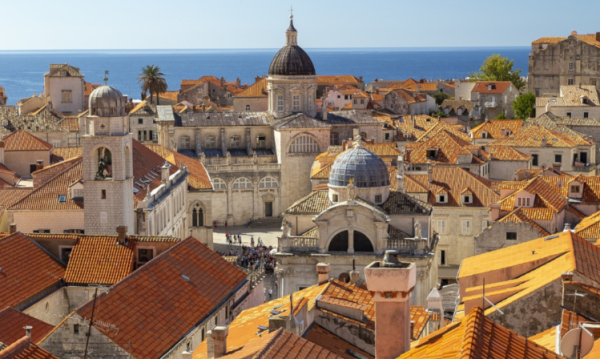- Booming Tourism and Economic Growth:
One of the driving forces behind Croatia's real estate market is its flourishing tourism industry. With its breathtaking beaches, crystal-clear waters, and picturesque towns, the country attracts millions of visitors each year. This surge in tourism has led to increased demand for holiday rentals, second homes, and investment properties. Coastal regions like Dubrovnik, Split, and Istria have become hotspots for real estate development, offering lucrative opportunities for investors looking to capitalize on the tourism boom.
Moreover, Croatia's overall economic growth has also contributed to the attractiveness of its property market. The country has made significant strides in recent years, witnessing positive GDP growth and attracting foreign direct investment. These factors have created a favorable environment for real estate investors, as economic stability often translates into increased property values and rental potential.
- Regional Growth Disparities:
While Croatia's coastal regions are experiencing robust growth and high demand, it's important to note that there are regional disparities within the country's property market. Inland areas and smaller towns may offer more affordable options, but they might not have the same level of investment potential as the popular coastal destinations. Investors should carefully consider their goals and target market when exploring opportunities in different regions of Croatia.
- Investment Incentives and Policies:
Croatia has implemented several investment incentives and policies to attract foreign investors. Non-EU citizens can acquire real estate in the country, subject to reciprocity agreements and meeting certain conditions. The government has also introduced favorable tax regimes for specific investment projects, aiming to stimulate economic growth and encourage real estate development. However, it's crucial for investors to understand the legal and regulatory frameworks, ensuring compliance with all necessary procedures and documentation.
- Potential Risks and Challenges:
Investing in any emerging real estate market comes with its fair share of risks and challenges, and Croatia is no exception. It's essential to be aware of potential pitfalls and factors that could impact investment returns. Some of the challenges include navigating complex legal processes, potential changes in tax regulations, fluctuating property prices, and uncertainties surrounding property rights. Engaging with local legal experts and consulting professionals in the field can help mitigate these risks and ensure a smooth investment experience.
- Diversification and Property Types:
Croatia's real estate market offers diverse options for investors seeking different property types. While coastal apartments and villas are popular choices, there are also opportunities in commercial properties, land development, and renovation projects. Diversifying one's investment portfolio across various property types can help mitigate risk and maximize returns.
- Infrastructure Development:
Infrastructure development plays a significant role in the growth and attractiveness of a real estate market. Croatia has been investing in infrastructure projects, including transportation networks, airports, and cultural facilities, to enhance connectivity and promote tourism. These developments can have a positive impact on property values and the overall investment landscape.
Conclusion:
Croatia's emerging property market presents a wealth of opportunities for investors seeking to capitalize on the country's natural beauty, economic growth, and thriving tourism industry. Coastal regions continue to be in high demand, while inland areas offer more affordable options. Understanding the legal and regulatory frameworks, as well as potential risks, is crucial for investors looking to navigate Croatia's real estate market successfully. By conducting thorough research, seeking professional advice, and carefully considering their investment goals, investors can unlock the potential of this exciting market and secure their foothold in Croatia's real estate landscape.


